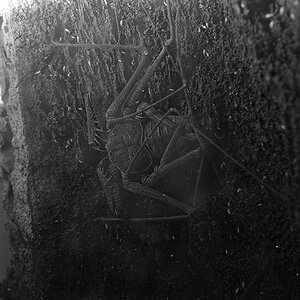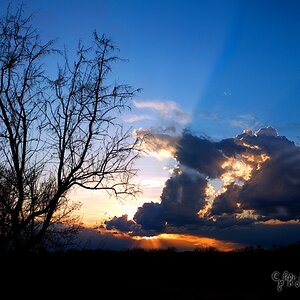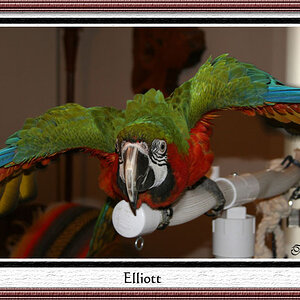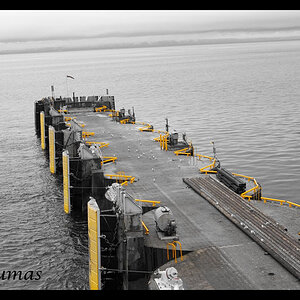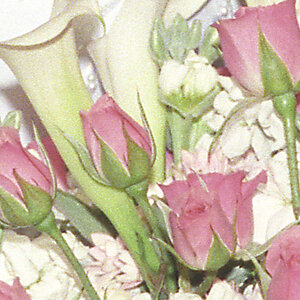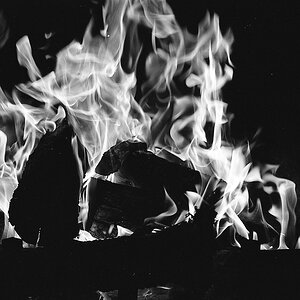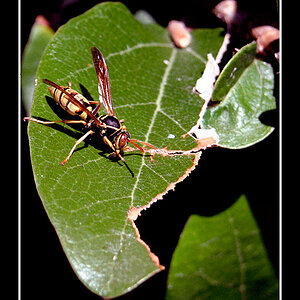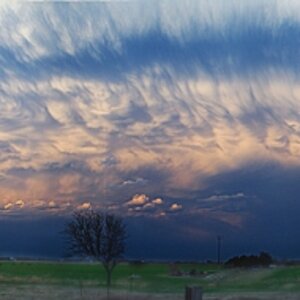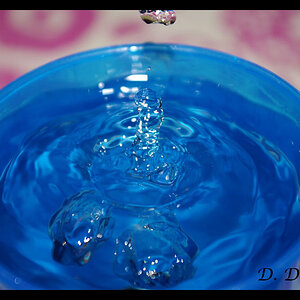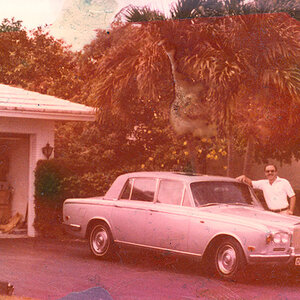Navigation
Install the app
How to install the app on iOS
Follow along with the video below to see how to install our site as a web app on your home screen.

Note: This feature currently requires accessing the site using the built-in Safari browser.
More options
You are using an out of date browser. It may not display this or other websites correctly.
You should upgrade or use an alternative browser.
You should upgrade or use an alternative browser.
Rules on street photography
- Thread starter revenater
- Start date
Ballistics
Been spending a lot of time on here!
- Joined
- Jun 5, 2011
- Messages
- 3,781
- Reaction score
- 633
Which US law?
Don't even bother.
Last edited:
skieur
TPF Noob!
- Joined
- May 14, 2007
- Messages
- 5,071
- Reaction score
- 204
- Location
- Canada
- Can others edit my Photos
- Photos OK to edit
There is a difference between the act of taking photos, and the property rights of the photographer.
The act of taking photos is LEGAL with the usual few exceptions of top secret, child porn, etc. If the photos have not violated these few exceptions then, the photographer can publish the photos or make any other use of them, with the exception of advertising which requires the permission of the person subject in the photo.
And please!
 Don't be sufficiently silly to ask me what law specifies what is NOT ILLEGAL. You know *** well that laws are not written that way.
Don't be sufficiently silly to ask me what law specifies what is NOT ILLEGAL. You know *** well that laws are not written that way.skieur
fmw
No longer a newbie, moving up!
Mr. Campbell is correct. I'm reminded of a photographer who made a nice image of a little girl riding on a merry go round. She was certainly in public. The photographer sold the image the had to deal with a serious lawsuit. There are some exceptions but basically, have model releases for any image that has recognizable faces.
usayit
No longer a newbie, moving up!
- Joined
- Nov 15, 2003
- Messages
- 9,521
- Reaction score
- 347
- Can others edit my Photos
- Photos OK to edit
wah? fmw? blast from the past?
skieur
TPF Noob!
- Joined
- May 14, 2007
- Messages
- 5,071
- Reaction score
- 204
- Location
- Canada
- Can others edit my Photos
- Photos OK to edit
Mr. Campbell is correct. I'm reminded of a photographer who made a nice image of a little girl riding on a merry go round. She was certainly in public. The photographer sold the image the had to deal with a serious lawsuit. There are some exceptions but basically, have model releases for any image that has recognizable faces.
Who is Mr. Campbell???? Without details your example is meaningless. Who? What? Where? When? Who won? What was the judgement?...etc.
skieur
Ballistics
Been spending a lot of time on here!
- Joined
- Jun 5, 2011
- Messages
- 3,781
- Reaction score
- 633
unpopular
Been spending a lot of time on here!
There is a difference between the act of taking photos, and the property rights of the photographer.
The act of taking photos is LEGAL with the usual few exceptions of top secret, child porn, etc. If the photos have not violated these few exceptions then, the photographer can publish the photos or make any other use of them, with the exception of advertising which requires the permission of the person subject in the photo.
And please!Don't be sufficiently silly to ask me what law specifies what is NOT ILLEGAL. You know *** well that laws are not written that way.
skieur
The issue here isn't if taking the photo was legal or not, but whether or not a photograph obtained while criminally trespassing is subject to property seizure, with the proceeds being the intellectual property and the crime being trespassing. This only applies in jurisdictions where trespassing is a criminal offense.
In this case, while it is not illegal to take the photo the property which results from the photo having been taken may have been obtained illegally and COULD BE in THEORY subject to court-compelled seizure. This may apply, again, in theory, in jurisdictions (not NY state, apparently) where trespassing alone is a crime.
So, as you can see (hopefully) there are two issues here: one is the act of taking a photograph, and the other is the ownership of the intellectual property of the photograph that had been taken. In any case, the photographer legally owns the IP unless the court orders otherwise - in other words, simply trespassing in itself does not void your copyright without a court-ordered injunction - an extremely unlikely event.
See http://en.wikipedia.org/wiki/Asset_forfeiture
Last edited:
swiftparkour94
TPF Noob!
- Joined
- Sep 14, 2012
- Messages
- 632
- Reaction score
- 16
- Can others edit my Photos
- Photos NOT OK to edit
My rule that applies to me: Shoot people. Don't make money with photos of candid street subjects. Use them as examples of your candid taking skills to add to your portfolio. I don't want to start any trouble whatsoever.
I don't plan on making money shooting street candid, however if I ever apply for shooting for the city or local paper then they are there when I need them to show as examples along with the stories behind them
I don't plan on making money shooting street candid, however if I ever apply for shooting for the city or local paper then they are there when I need them to show as examples along with the stories behind them
gsgary
Been spending a lot of time on here!
- Joined
- Oct 31, 2008
- Messages
- 16,143
- Reaction score
- 3,002
- Location
- Chesterfield UK
- Website
- www.gsgary.smugmug.com
- Can others edit my Photos
- Photos OK to edit
If people dont want to be photographed they should stay in
fmw
No longer a newbie, moving up!
Mr. Campbell is correct. I'm reminded of a photographer who made a nice image of a little girl riding on a merry go round. She was certainly in public. The photographer sold the image the had to deal with a serious lawsuit. There are some exceptions but basically, have model releases for any image that has recognizable faces.
Who is Mr. Campbell???? Without details your example is meaningless. Who? What? Where? When? Who won? What was the judgement?...etc.
skieur
Mr. Campbell is a man who posted earlier in this thread with an accurate assessment of commercial use images. As to the court case, my old mind doesn't remember the details other than than the photographer lost the case. If it is meaningless then so be it. I recommend you ignore it.
skieur
TPF Noob!
- Joined
- May 14, 2007
- Messages
- 5,071
- Reaction score
- 204
- Location
- Canada
- Can others edit my Photos
- Photos OK to edit
There is a difference between the act of taking photos, and the property rights of the photographer.
The act of taking photos is LEGAL with the usual few exceptions of top secret, child porn, etc. If the photos have not violated these few exceptions then, the photographer can publish the photos or make any other use of them, with the exception of advertising which requires the permission of the person subject in the photo.
And please!Don't be sufficiently silly to ask me what law specifies what is NOT ILLEGAL. You know *** well that laws are not written that way.
skieur
The issue here isn't if taking the photo was legal or not, but whether or not a photograph obtained while criminally trespassing is subject to property seizure, with the proceeds being the intellectual property and the crime being trespassing. This only applies in jurisdictions where trespassing is a criminal offense.
In this case, while it is not illegal to take the photo the property which results from the photo having been taken may have been obtained illegally and COULD BE in THEORY subject to court-compelled seizure. This may apply, again, in theory, in jurisdictions (not NY state, apparently) where trespassing alone is a crime.
So, as you can see (hopefully) there are two issues here: one is the act of taking a photograph, and the other is the ownership of the intellectual property of the photograph that had been taken. In any case, the photographer legally owns the IP unless the court orders otherwise - in other words, simply trespassing in itself does not void your copyright without a court-ordered injunction - an extremely unlikely event.
See Asset forfeiture - Wikipedia, the free encyclopedia
And to add, there was no benefit from an unlawful activity, since taking pictures is NOT unlawful, as the New York Judge ruled.
Therefore the photographer retained all rights to his photos.
skieur
skieur
TPF Noob!
- Joined
- May 14, 2007
- Messages
- 5,071
- Reaction score
- 204
- Location
- Canada
- Can others edit my Photos
- Photos OK to edit
Mr. Campbell is correct. I'm reminded of a photographer who made a nice image of a little girl riding on a merry go round. She was certainly in public. The photographer sold the image the had to deal with a serious lawsuit. There are some exceptions but basically, have model releases for any image that has recognizable faces.
Who is Mr. Campbell???? Without details your example is meaningless. Who? What? Where? When? Who won? What was the judgement?...etc.
skieur
Mr. Campbell is a man who posted earlier in this thread with an accurate assessment of commercial use images. As to the court case, my old mind doesn't remember the details other than than the photographer lost the case. If it is meaningless then so be it. I recommend you ignore it.
No it wasn't. Commercial use has been defined as for ADVERTISING PURPOSES. A very prominent case in New York determined that definition. The details are easy to find, related to a shot of a rabbi which was taken in the street and sold at a gallery. The rabbi sued but the photographer won.
skieur
unpopular
Been spending a lot of time on here!
The act of taking photos is LEGAL with the usual few exceptions of top secret, child porn, etc. If the photos have not violated these few exceptions then, the photographer can publish the photos or make any other use of them, with the exception of advertising which requires the permission of the person subject in the photo.
And please!Don't be sufficiently silly to ask me what law specifies what is NOT ILLEGAL. You know *** well that laws are not written that way.
skieur
The issue here isn't if taking the photo was legal or not, but whether or not a photograph obtained while criminally trespassing is subject to property seizure, with the proceeds being the intellectual property and the crime being trespassing. This only applies in jurisdictions where trespassing is a criminal offense.
In this case, while it is not illegal to take the photo the property which results from the photo having been taken may have been obtained illegally and COULD BE in THEORY subject to court-compelled seizure. This may apply, again, in theory, in jurisdictions (not NY state, apparently) where trespassing alone is a crime.
So, as you can see (hopefully) there are two issues here: one is the act of taking a photograph, and the other is the ownership of the intellectual property of the photograph that had been taken. In any case, the photographer legally owns the IP unless the court orders otherwise - in other words, simply trespassing in itself does not void your copyright without a court-ordered injunction - an extremely unlikely event.
See Asset forfeiture - Wikipedia, the free encyclopedia
And to add, there was no benefit from an unlawful activity, since taking pictures is NOT unlawful, as the New York Judge ruled.
Therefore the photographer retained all rights to his photos.
skieur
NEW
YORK
COURT
DECISIONS
DON'T
APPLY
IN
MONTANA
or anywhere else outside that court's jurisdiction aside from primary persuasive argument
YORK
COURT
DECISIONS
DON'T
APPLY
IN
MONTANA
or anywhere else outside that court's jurisdiction aside from primary persuasive argument
Similar threads
- Replies
- 0
- Views
- 594
- Replies
- 12
- Views
- 879

